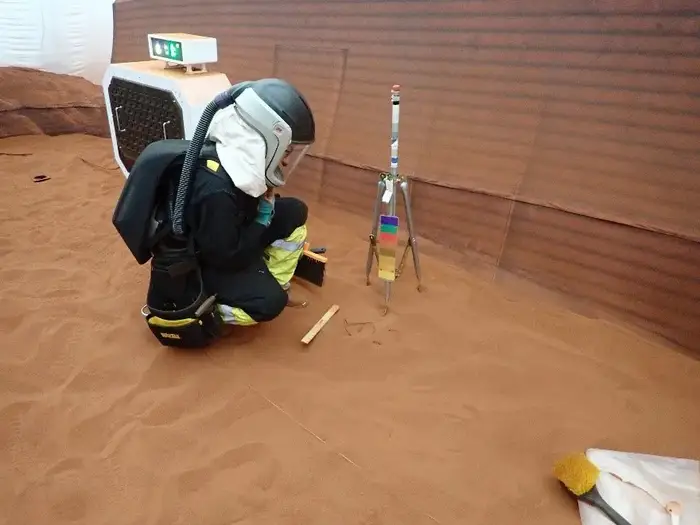If you’re into facing extreme challenges, NASA has an exciting opportunity for you. They’re seeking volunteers for their second year-long simulated Mars mission, CHAPEA 2. During the mission, which starts in spring 2025, four crew members will live in a 1,700-square-foot 3D-printed habitat in Houston. Applications are open on the CHAPEA website until April 2.
It should be noted that it’s a paid job, and NASA hasn’t disclosed the compensation amount publicly.
The Mars Dune Alpha habitat at NASA’s Johnson Space Center is made to mimic life on Mars, where conditions are tough and supplies are scarce.
Right now, a crew is living as part of the first CHAPEA mission halfway through its 378-day job. The volunteers are doing tasks like maintaining the habitat and growing crops. There’s even a 1,200-square-foot sandbox attached for practice spacewalks.
Eligibility Criteria:
NASA is searching for “healthy, motivated US citizens or permanent residents” aged 30 to 55 who speak English well and don’t smoke.
Similar to astronauts who venture into space, NASA is seeking simulation astronauts with a master’s degree in a STEM field. They should also have two years of work experience or 1,000 hours of jet piloting.
To apply, you need to be a US citizen aged 30-55, speak English well, and have a master’s degree in a STEM field. Plus, you should have at least two years of work experience a thousand hours of flying an aircraft, or two years of progress in a STEM doctoral program. Some work experience might also qualify you even without a master’s degree.
The agency stated, “Applicants should be eager for exciting and fulfilling adventures and have a keen interest in helping NASA prepare for the first human trip to Mars.”
To qualify, applicants must pass a criminal background check, a psychiatric screening, and a medical evaluation. This is because they’ll be spending a year in extreme isolation with three others, following a strict schedule.
A NASA spokesperson emailed Myelectricsparks that pay for CHAPEA participants, saying The compensation would align with what participants receive in similar missions, but didn’t give any specifics.









